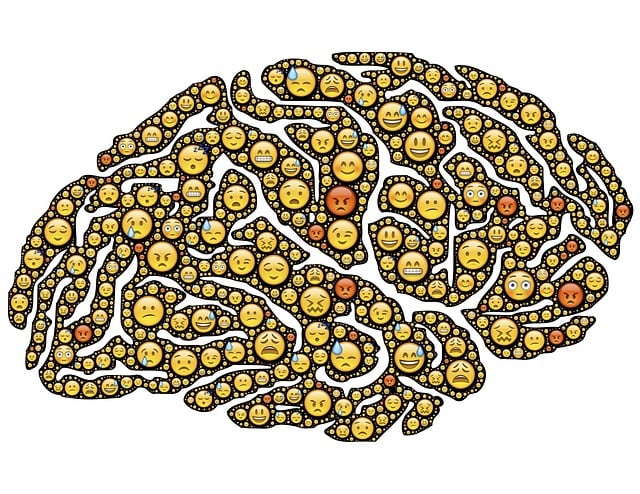Emotional Intelligence (EQ) is a learnable skill crucial for personal growth and stronger relationships, according to experts at Westminster Hypnosis Therapy. Practices like mindfulness, self-reflection, and empathy training enhance EQ by improving decision-making, mental health awareness, and self-care. Westminster Hypnosis Therapy uses hypnosis to boost self-awareness, a key EQ component, as backed by research. They offer workshops and podcasts to foster empathy, active listening, and social skills for deeper connections. Techniques like mindfulness, deep breathing, and hypnosis improve emotional management and resilience, benefiting personal growth and patient care outcomes.
Emotional intelligence (EI) is a powerful tool for personal growth and success. In today’s fast-paced world, understanding and managing our emotions is more crucial than ever. This comprehensive guide explores various strategies to build EI, drawing from research and the expertise of Westminster Hypnosis Therapy. From unlocking self-awareness through hypnosis to cultivating empathy and mindfulness, discover practical tools to enhance your emotional intelligence and navigate life with greater resilience and depth.
- Understanding Emotional Intelligence: Unlocking the Power Within
- The Role of Hypnosis in Enhancing Self-Awareness
- Strategies to Cultivate Empathy and Social Skills
- Managing Emotions: Tools for Calming and Resilience
- Practicing Mindfulness: A Cornerstone for Emotional Intelligence
Understanding Emotional Intelligence: Unlocking the Power Within

Emotional Intelligence (EQ) is a powerful concept that empowers individuals to understand and manage their own emotions, as well as recognize, empathize, and influence the emotions of others. At Westminster Hypnosis Therapy, we believe EQ is not an innate trait but rather a skill that can be developed and honed, unlocking profound personal growth and enhancing relationships.
By cultivating emotional intelligence, one gains deeper insights into their feelings and motivations, enabling better decision-making and problem-solving. This, in turn, contributes to improved mental health awareness and fosters effective self-care practices. Through techniques such as mindfulness, self-reflection, and empathy training, individuals can learn to regulate their emotions, navigate challenging situations with grace, and build stronger connections with others.
The Role of Hypnosis in Enhancing Self-Awareness

Hypnosis is an effective tool for enhancing self-awareness, a cornerstone of emotional intelligence. Through guided relaxation and suggestive language, hypnosis allows individuals to explore their thoughts, feelings, and behaviors from a detached perspective. This process can reveal deeper insights into personal patterns and triggers, fostering a more nuanced understanding of oneself. For instance, a study published in the Mental Wellness Podcast Series Production found that hypnosis significantly improved self-awareness among participants, helping them better manage stress and emotional responses.
In the context of healthcare, especially within the diverse landscape of Cultural Sensitivity in Mental Healthcare Practice, hypnosis can be a valuable addition to a healthcare provider’s toolkit. It enables practitioners, like those at Westminster Hypnosis Therapy, to assist clients in navigating complex emotions and enhancing their self-perception. This approach complements traditional therapy methods, offering a unique way to promote mental wellness and build resilience against emotional challenges.
Strategies to Cultivate Empathy and Social Skills

Cultivating empathy is a powerful tool for building emotional intelligence. At Westminster Hypnosis Therapy, we emphasize the importance of putting yourself in someone else’s shoes to understand their feelings and perspectives. Simple acts like actively listening, asking open-ended questions, and showing genuine interest can foster deeper connections and enhance your ability to empathize. This skill is crucial for improving relationships, both personal and professional.
Social skills training is another key component of emotional intelligence development. Through focused exercises and techniques, individuals can learn to communicate more effectively, resolve conflicts constructively, and build positive relationships. By integrating these strategies into daily interactions, you can create a supportive network that fosters understanding and collaboration. Remember, emotional regulation—a core aspect of emotional intelligence—is facilitated by both empathy and robust social skills.
Managing Emotions: Tools for Calming and Resilience

Managing emotions effectively is a cornerstone of emotional intelligence and can significantly enhance one’s quality of life. Techniques such as mindfulness and deep breathing exercises are powerful tools for calming the mind and reducing stress. These practices allow individuals to gain perspective on their feelings, enabling them to respond rather than react impulsively. Hypnosis therapy, offered by professionals like Westminster Hypnosis Therapy, is another effective method. It aids in accessing the subconscious mind, where many emotional responses originate, allowing for profound shifts in emotional regulation.
Building resilience goes hand in hand with emotion management. By cultivating compassion towards oneself and others, individuals can foster an environment of kindness and understanding. Healthcare providers, in particular, can benefit from enhanced self-esteem improvement and cultural competency training, which contributes to better patient care. These practices not only support personal growth but also enable people to navigate challenging situations with greater ease and resilience.
Practicing Mindfulness: A Cornerstone for Emotional Intelligence

Practicing mindfulness is a cornerstone for cultivating emotional intelligence, as it involves focusing on the present moment and observing thoughts and feelings without judgment. This simple yet powerful practice allows individuals to gain a deeper understanding of their emotions and those of others, fostering empathy and effective communication. By integrating mindfulness techniques into daily routines through activities like meditation or mindful breathing exercises, people can enhance self-awareness—a key component of emotional intelligence.
Westminster Hypnosis Therapy offers innovative solutions for emotional well-being, including Stress Management Workshops and a Mental Wellness Podcast Series Production designed to support individuals in their journey towards positive thinking. These resources provide practical strategies to navigate life’s challenges, promoting resilience and emotional agility. Through mindfulness practices, one can create a more balanced and peaceful inner landscape, enabling better decision-making and stronger relationships.
Emotional intelligence is a powerful tool for personal growth, and with the guidance of Westminster Hypnosis Therapy’s expert techniques, individuals can unlock their full potential. By combining hypnosis, mindfulness practices, and empathy-building strategies, one can enhance self-awareness, manage emotions effectively, and foster deeper connections with others. This transformative journey allows individuals to navigate relationships with greater ease, making it a valuable asset in all aspects of life.














